TRUST IN MIND

Wisdom Publications
199 Elm Street
Somerville MA 02144 USA
www.wisdompubs.org
2004 Mu Soeng
All rights reserved.
No part of this book may be reproduced in any form or by any means, electronic or mechanical, including photography, recording, or by any information storage and retrieval system or technologies now known or later developed, without permission in writing from the publisher.
Library of Congress Cataloging-in-Publication Data available
Mu, Soeng.
Trust in mind : the rebellion of Chinese Zen / Mu Soeng; foreword by Jan Chozen Bays.
p. cm.
Includes bibliographical references and index.
ISBN 0-86171-391-5 (pbk. : alk. paper) -- ISBN 0-86171-391-5
ISBN 978-0978-0794-1 (ebook)
1. Sengcan, d. 606 Xin xin ming. 2. Spiritual lifeZen Buddhism.
I. Title.
BQ9288.M84 2004
294.3'85dc22
2004000199
Cover design by Rick Snizik. Interior design by Gopa&Ted2. Set in Renard 3, 8/10
Blyth, R. H. The Believing Mind is reprinted from Zen and Zen Classics, Volume One, published by The Hokuseido Press, Tokyo, 1960.
A Song of Enlightenment translated by Philip Dunn and Peter Jourdan is reprinted from The Book of Nothing, published by Andrews McMeel Publishing, Kansas City, MO, 2002.
The Book Laboratory Inc. California.
Trust in Mind. Private translation by Stanley Lombardo is reprinted with permission from the translator.
Have Faith in Your Mind translated by Lu Kuan Yu (Charles Luk) is reprinted from Practical Buddhism, published by Rider & Co. Ltd., London, 1971.
Faith in Mind translated by Master Sheng-yen is reprinted from The Poetry of Enlightenment: Poems by Ancient Chan Masters. Elmhurst, NY: Dharma Drum Publications, 1987.
Inscribed on the Believing Mind translated by D.T. Suzuki is reprinted from Essays in Zen Buddhism, First Series. York Beach, Maine: Samuel Weiser, Inc., 1949.
Waley, Arthur (ed.) On Trust in the Heart is reprinted from Buddhist Texts Through the Ages. New York: Harper & Row, 1964.
Wisdom Publications books are printed on acid-free paper and meet the guidelines for permanence and durability of the Committee on Production Guidelines for Book Longevity of the Council on Library Resources.
Printed in the United States of America
 Table of Contents
Table of Contents 
T HIS BOOK BY Mu Soeng is a welcome one, as there are only a few resources or commentaries on the Trust in Mind poem available currently in English. Mu Soeng combines what he calls library understanding and zendo understanding in a manner accessible to both those who study Zen or Chan in books and those who study Zen on the meditation cushion. The early founders of Japanese Zen temples and centers in America (Roshis Suzuki, Katagiri, Maezumi, and Kapleau) emphasized direct inquiry into the nature of Mind through meditation and silent retreats and not through academic study. Perhaps some of them knew that their time with us was short, and they winnowed their task down to the essential: helping us touch the mind of the Buddha, experience the deeply quiet mind, and encounter the flashes of direct knowing that arise from it. Our minds were chock full of odd ideas about meditation and enlightenment and our teachers had only a little time to entice us into dropping those notions and doing the hard work that would enable us to taste the actual experience of the bright clarity of samadhi and the deep flow of prajna wisdom.
In the introduction to this book Mu Soeng first pulls back from the sutra to help us understand the historical and philosophical environment that shaped the life and beliefs of the Buddhist ancestor who composed this song of enlightenment. Although the third Zen ancestor Sengcan may not have been the actual author, it was some Zen ancestor who gave us this poem which has endured to instruct and inspire Zen students for 1,300 years. Ancestors are those who leave descendants, and we who read, study, and chant this sutra are the descendants of the enlightened master who sang this most happy song.
As we look at the past we think that things were fixed, that Chan Buddhism arose fully formed as its own distinct entity. Mu Soeng points out that as Buddhism enters new countries and cultures it subtly incorporates and adapts preexisting beliefs and practices. Trust in Mind is a creation arising from the blending of Indian Buddhist, Chinese Taoist, and Chinese Chan doctrine. A similar mingling of religious streams is occurring at this time in America: witness the earnest practitioners and groups who self-identify as, for example, Catholic-Zen, Quaker-Vipassana, or Judeo-Buddhist. Because we are in the midst of this cross fertilization process, we cannot perceive it with the objectivity of a historian. Perhaps an enlightenment poem that will last for millennia will arise in modern times. May it be so.
At Great Vow Zen Monastery, we chant Sengcans poem every day during our weeklong meditation retreats and it is a favorite among many people because it gives such clear instructions on how to proceed toward liberation from the tyranny of mind. In many different ways the poem makes one essential point: dont let the mind fall into comparisonsat all! It abjures us with a listing, line by line, of the many opposites that we should not let arise in the mind. Thirty-four pairs of opposites are used as examples of what not to think about: love and hate, like and dislike, heaven and earth, for and against, lack and excess, accepting and rejecting, outer things and inner feelings, activity and passivity, one and the other, assertion and denial, emptiness and reality, this and that, right and wrong, dualities and One, object and subject, coarse and fine, easy and difficult, fast and slow, coming and going, free and in bondage, dislike and accept, wise and foolish, one and many, rest and unrest, illusion and enlightenment, gain and loss, right and wrong, stationary and moving, movement and rest, self and other-than-self, large and small, Being and non-Being, one thing and all things, yesterday and tomorrow.
If you let go of all these opposites your mind might become very quiet and very expansive, resting in a state of radical inclusion. All spiritual work is aimed at developing our highest human potential, to live in a complex and often violent world with a mind that can be trusted to be clear and wise, and a heart that is undefended and open to all beings. The key to unlocking this potential lies in being able to cease our habit of sorting and judging. All great spiritual teachers have given us the same message and it reminds us of our primary purpose in undertaking a life of religious practice. We must open the gateway, not just to our full potential as human beings, but ultimately to freedom from the suffering that seems inherent in a human life.
Dogen Zenji, the great Zen master of the thirteenth century, advised, Simply think of non-thinking. With this, Dogen invites us to fill the mind with something other than thinkingwith, for example, mantra, or the simple question of a koan, or best of all, pure awareness. Dogen also wrote that the mind of enlightenment is a mind that is aware of impermanence, of discontinuity, of ceaseless birth and death. This does not mean that the enlightened mind thinks about impermanence, but rather that it has a continuous experience of the actual functioning in this moment of impermanence, of arising and disappearing.
In the Pali canon, the Buddha recounts that as he sat under the Bodhi tree, just on the brink of enlightenment, he reached a stage where his mind was purified, bright, unblemished, light, and rid of imperfection. What is this imperfection of which he was rid? It is simply self-centered thought. When we examine discursive thoughts, all comparing and judging thoughts, we discover they are all self-centered. Even self-critical thoughts are self-centered; high self-esteem and low self-esteem are both forms of esteeming the self. If we are to experience for ourselves the Truth that we earnestly long for, we must find a way to suspend, for a time, the thought-function of the mind and activate the awareness-function. Only when we enter pure awareness do subject and object drop away and we leave behind the confusion and anxiety of the realm of individual mind to enter the eternal serenity of the realm of One Mind.
Next page
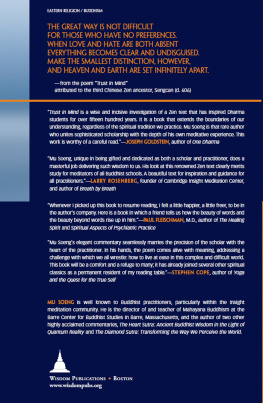
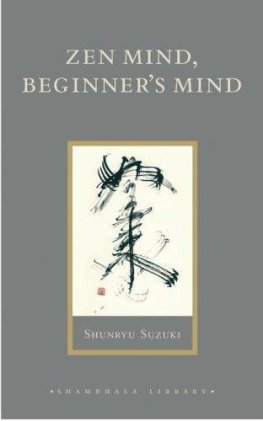

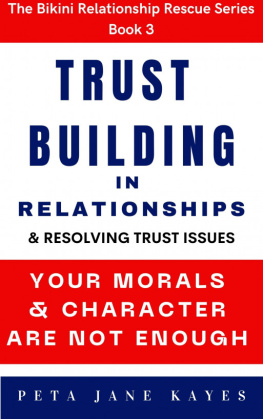

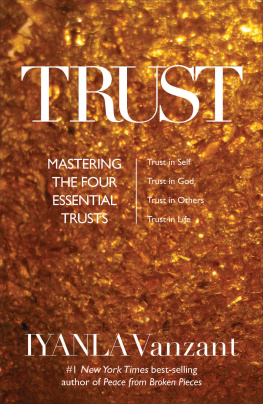
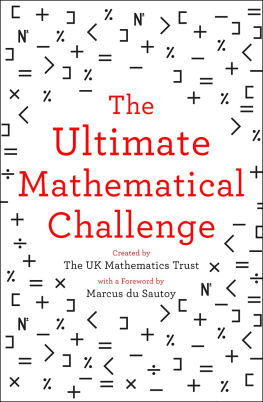
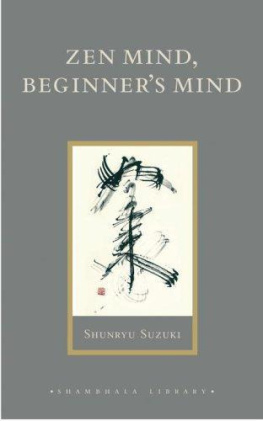

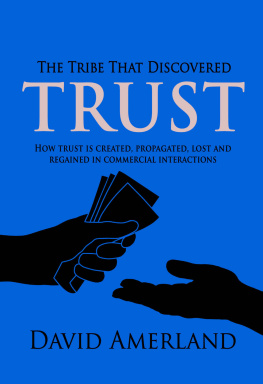
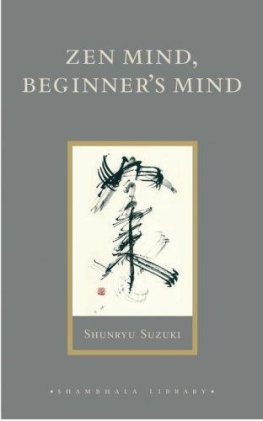

 Table of Contents
Table of Contents